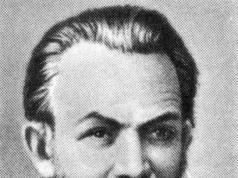Like many other scientific words, it was formed using the Greek stems etymo(n) "true meaning" and logos "learning".
Watch value etymology in other dictionaries
False etymology- the same as folk etymology.
Folk etymology- (false etymology) - understanding the morphological composition of the word and motivating its meaning on the basis of convergence with consonant words that are different from it in origin ........
Big encyclopedic dictionary
Folk etymology- - everyday, not associated with special historical linguistic knowledge and training, explanation of the origin of words; e.g. lat. by origin "proletarian" ........
Psychological Encyclopedia
ETYMOLOGY- ETYMOLOGY, -i, f. 1. A section of linguistics that studies the origin of words. 2. The origin of a particular word or expression. Determine the etymology of the word. * Folk etymology........
Explanatory dictionary of Ozhegov
ETYMOLOGY— ETYMOLOGY, etymologies, f. (from Greek etymos - true and logos - teaching) (lingu.). 1. only units Department of linguistics that studies the origin of words. Etudes on Russian etymology. 2. Most........
Explanatory Dictionary of Ushakov
Etymology- and. 1. A section of linguistics that studies the origin of words. 2. The origin of a word or expression in terms of its relationship with other words or expressions of this and other languages
Explanatory Dictionary of Efremova
See also `Etymology` in other dictionaries
And, well. 1. A section of linguistics that studies the origin of words. 2. The origin of a particular word or expression. Determine the etymology of the word. * Folk etymology (special) - alteration of a borrowed word according to the model of a similar-sounding word of the native language based on the association of meanings (for example, in Leskov: a small scope instead of a microscope). adj. etymological, -th, -th. E. dictionary.
etymology
(Greek etymologia from etymon - truth, the main meaning of the word + logos - concept, teaching). 1) A section of linguistics that studies "the origin and history of individual words and morphemes. 2 The origin and history of words and morphemes. The etymology of the word "grammar"
Etymology ETYMOLOGY. 1. The school name of the grammar department, which includes phonetics and morphology Ph.D. language; in this sense, e. is opposed to syntax; in science, the word e. is not used in this sense. 2. In the science of E. of this or that word (in the plural: E-and those or other words) - the origin and history of the morphological composition of this or that individual word, with the elucidation of those morphological elements from which the given word was once formed. N.D.
1. Section of linguistics.
2. Medieval edition of Isidore of Seville.
3. Studying the origin of words.
4. Section of linguistics on the origin of words.
(etymology) - the study and evaluation of the origin, as well as the development of words. In modern linguistics, there is a distinction between diachronic language learning (etymology) and synchronic learning (structural analysis) (see Synchronic and Diachronic). The subject of etymology is the identification of the origin and change of meanings of specific words, as well as historical genealogies of groups or "families" of languages, for example, Indo-European, Amerindian (American Indians), etc.
Etymology
ETYMOLOGY and, well. étymologie f., c. etymologia naming the waterfall ruler moisture, I personify it, forgetting its etymology, and I speak of that invisible moteur, the instigator of the water turmoil. 28. 8. 1825. P.A. Vyazemsky - Pushkin. // RA 1874 1 170. - Lex. Ush. 1940: etimolo/ gia.
Historical Dictionary of Gallicisms of the Russian Language. - M.: Dictionary publishing house ETS http://www.ets.ru/pg/r/dict/gall_dict.htm. Nikolay Ivanovich Epishkin [email protected] . 2010
and. Greek word production, corneology, the doctrine of the formation of one word from another. -gical dictionary indicating the roots, origin of words, derivational. Etymologist, scholar in this field. Etymology is a conversation with the past, with the thoughts of past generations minted by them from sounds, Khomyakov.
and. 1) A section of linguistics that studies the origin of words. 2) The origin of a word or expression in terms of its relationship with other words or expressions of the given and other languages.
etymology etymology Through lat. etymologia from Greek. ἐτυμολογία from ἔτυμον "true meaning of words"; see Dornzeif 86; Thomsen, Gesch. fourteen. Etymological dictionary of the Russian language. - M.: Progress M. R. Vasmer 1964-1973
etymology, g. (from Greek etymos - true and logos - teaching) (lingu.). 1. only units Department of linguistics that studies the origin of words. Etudes on Russian etymology. 2. The very origin of a word. This word has an unclear etymology. Establish the etymology of some. the words. The etymology of the word "telephone" is Greek. 3. only units Grammar without syntax (i.e., the doctrine of sounds, parts of speech and word forms), advantages. as a subject of school teaching (obsolete). Folk etymology (lingu.) - alteration of an incomprehensible (for example, borrowed) word, explained by the need to bring it closer in sound likeness to some kind of. from familiar words and thus comprehend it, for example. "buyer" vm. "speculator" under the influence of "buy"; it's just a modified word.
Etymology (from Greek etymologia - truth + logic) 1)
the origin of the word (applies to concepts that have arisen in the scientific language); 2)
a branch of linguistics that studies the original word-formation structure of a word and reveals the elements of its ancient meaning.
Etymology etymol ogiya, -i (section of linguistics that studies the origin of words)
Russian word stress. - M.: ENAS. M.V. Zarva. 2001 .
etymology
ETYMOLOGY
1.
2. The origin of a particular word or expression. Unclear e. the words. Determine the etymology of the word. folk e. (specialist.; alteration of a borrowed word according to the model of a similar-sounding word of the native language based on the association of meanings, for example: melkoscope - Leskov's microscope).
◁ Etymological, -th, -th. uh research. E. dictionary.
ETYMOLOGY (from the Greek etymon - truth>, true meaning> words and ... logic), 1) the origin of a word or morpheme. 2) A branch of linguistics that studies the original word-formation structure of a word and identifies the elements of its ancient meaning, the study of sources and the process of forming the vocabulary of a language.
etymology
-and
,
and. A branch of linguistics that studies the origin of words, their initial structure and semantic connections. The origin of the word and its relationship to other words of the same or other languages. Obscure etymology of the word.
folk etymology
lingu. alteration of a borrowed word according to the model of a similar-sounding word in the native language.
[Greek 'ετυμολογία]
Small academic dictionary. - M.: ...The study of the historical origin and development of linguistic forms.
root word, word production
Wed ОµП„П…ОјОїО»ОїОіОЇα(ОµП„П…ОјОїОS, root, ОµП„П…ОјОїП‚, true) - indication of the true meaning and the beginning of the word.
Etymology
etymology,
etymology,
etymology,
etymology,
etymology,
etymologies
etymology
etymology,
etymology
etymology
etymologies
And its contacts with other reconstructed proto-languages.
Story
The tradition of compiling etymologies of individual words originates in antiquity. For example, in the ancient east it is "Nirukta" (Skt. िनरुक्त) Yaski (c. VI-V centuries BC) for Sanskrit; the most important etymological dictionary of the ancient Chinese language " Shimin"(Chinese 释名, 釋名, "Explanation of Names"; early III century AD) authorship or philologist Liu Xi (刘熙, 劉熙 (熹)) nicknamed Chengguo (成國), or historian Liu Zhen(劉珍) ; the direction of the traditional grammar of the Arabic language "al-ishtikak" (arab. الاشتقاق ), in particular a two-volume monograph on the Turkic languages, explained through Arabic - "Collection of Turkic dialects" (1074) by Mahmud al-Kashgari.
In the Western tradition, such beginnings of etymological research in Greek come from the 4th century BC. e. (Plato's dialogue "Cratylus"), then finding its continuation in the teachings of the Stoics. Among the Greek lexicographers of late antiquity, one can single out the Neoplatonist Orion of Thebes (d. ca. 450) - the author of the lexicon "Orionis Thebani Etymologicon" (Greek. Ετυμολογικόν Ωρίωνος Θηβαίου ) (5th century), partially preserved in a manuscript of the 12th or early 13th century, which served as the basis for medieval compilations. However, large etymologies of Greek compiled in alphabetical order appear no earlier than the lexicographic works of Patriarch Photius I of Constantinople (c. 820-896), which served as the basis for such codes of Greek etymologies as "Etymologicum Genuinum" (2nd half of the 9th century, Constantinople), "Etymologicum Parvum" (9th century), "Etymologicum Gudianum" (Greek. Γουδιανόν Ετυμολογικόν ; XI century), "Etymologicum Symeonis" (Greek. Ετυμολογικον του Συμεώνος ; 1st floor XII century), "Etymologicum Magnum" (Greek. Μέγα Ετυμολογικόν ; OK. 1150, Constantinople).
However, etymological dictionaries in the modern sense appeared only at the end of the 18th century. Their predecessors in the 16th-17th centuries were: the Etymologikum of the Dutch language, which went through eleven reprints (lat. Etymologicvm Tevtonicæ lingvæ: sive Dictionarivm Tevtonico-Latinvm, præcipvas Tevtonicæ lingvæ dictiones et phrases Latinè interpretatas, & cum aliis nonnullis linguis obiter collatas complectens) Cornelis Kilian (Antwerp, 1599), "Latin Etymology" (lat. Etymologicon linguæ latinæ: praefigitur ejusdem de literarum permutatione tractatus) Vossius (Amsterdam, 1662), "Etymology of the English Language" (lat. Etymologicon Linguæ Anglicanæ, Seu Explicatio Vocum Anglicarum Etymologica Ex Proprils Fontibus, Scil. Ex Linguis Duodecim) Stephen Skinner (London, 1671).
After the laws of regular sound and language changes were established in the 19th century, the compilation of etymological dictionaries became one of the important tasks of specialists working in the field of comparative historical linguistics.
In Western Europe, the first among scientific dictionaries in the modern sense was published the "Etymological Dictionary of the Romance Languages" (German. Etymologisches Wörterbuch der Romanischen Sprachen; 1853) Fr. K. Ditsa, later Slavist F. Mikloshich published the Etymological Dictionary of Slavic Languages (German. Etymologisches Wörterbuch der slavischen Sprachen, 1886).
In Russia, the first attempts came in the 19th century: researchers K. F. Reif, F. S. Shimkevich, M. M. Izyumov, N. V. Goryaev, A. N. Chudinov tried to put together their etymological searches. The work of A. Kh. Vostokov “Etymological Word Schedule” (1808-1809; excerpts published by I. I. Sreznevsky and S. K. Bulich) remained in the manuscript - with a huge number of words, according to I. I. Sreznevsky, approximately 40 sheets small set. At the beginning of the 20th century, the Etymological Dictionary of the Russian Language appeared. A. G. Preobrazhensky (1910-1916, 1949) .
Etymological dictionaries as a source of data for statistical research
Notes
- Kamchatnov A. M., Nikolina N. A. An Introduction to Linguistics: A Study Guide. - 10th ed., stereotype. - M.: FLINTA; Nauka, 2011. - S. 89. - 232 p. - ISBN 978-5-89349-149-4 (FLINTA), ISBN 978-5-02-011720-4 (Science).
- Susov I.P. Indian Linguistic Tradition // History of Linguistics: Textbook for undergraduate and graduate students / Tver. state un-t. Dept. total and class. linguistics. - Tver: Tver State University, 1999. - 276 p. - ISBN 5-7609-0143-5.
- Guryan N.V. From the history of existence and study of the ancient Chinese dictionary "Shimin" ("Explanation of names") // Philological Sciences. Questions of theory and practice. - 2016. - No. 3 (57), in 2 parts. Part 1. - S. 114-117. - ISSN 1997-2911.
- Susov I.P. Chinese Linguistic Tradition // History of Linguistics: Textbook for undergraduate and graduate students / Tver. state un-t. Dept. total and class. linguistics. - Tver: Tver State University, 1999. - 276 p. - ISBN 5-7609-0143-5.
- Susov I.P. Arabic linguistic tradition // History of linguistics: Textbook for undergraduate and graduate students / Tver. state un-t. Dept. total and class. linguistics. - Tver: Tver State University, 1999. - 276 p. - ISBN 5-7609-0143-5.
- Pisani W. Etymology. History, problems, method / Per.s ital. D. E. Rosenthal; under. ed. and with preface. V. I. Abaeva. - M.: Foreign literature, 1956. - S. 10 ff .. - 186 p.
An etymological dictionary is a dictionary containing information about the history of individual words, and sometimes morphemes, that is, information about the phonetic and semantic changes that they have undergone. Large explanatory dictionaries may also contain notes on the etymology of words. Since the origin of many words does not lend itself to an exact unambiguous definition, etymological dictionaries record different points of view and contain references to the relevant literature.
The tradition of compiling etymologies of individual words originates in antiquity, but etymological dictionaries in the modern sense of the word appeared only at the end of the 18th century. Their predecessors in the 17th century were the Etymologicum of the Latin language (lat. Etymologicum linguae Latinae) by Vossius (1662), the Etymologicon of the English language (lat. Etymologicon Linguae Anglicanae) by S. Skinner (1671). After the establishment in the XIX century. laws of regular sound changes, the compilation of etymological dictionaries has become one of the important tasks of specialists working in the field of comparative historical linguistics.
Some etymological dictionaries include information on groups of languages and contain reconstructions of the parent language's vocabulary and its contacts with other reconstructed parent languages.
Max Vasmer, or in the Russian manner - Maximilian Romanovich Vasmer, was born in St. Petersburg on February 28, 1886 in a Russian German family: his father, a merchant, moved to St. Petersburg as a young man. M. Vasmer studied at the classical gymnasium K. I. Maya - at that time in Russia they gave an excellent classical education. In 1903, seventeen-year-old M. Fasmer passed the matriculation examination and in the same year began studying Slavic and comparative linguistics at St. Petersburg University under the guidance of the remarkable Slavist Baudouin de Courtenay, the founder of the Kazan Linguistic School. According to Margareta Voltner, a close friend of M. Fasmer, in Baudouin de Courtenay, he found an understanding and very enthusiastic teacher, a caring fatherly elder friend, whose breadth of scientific horizon and fearlessness in the struggle for his own convictions became for Fasmer, and through Fasmer for him students with the ideal of a true scientist. Among the teachers of M. Fasmer, A. A. Shakhmatov should also be mentioned. Later, M. Vasmer recalled that he was grateful for every Sunday morning spent with A. A. Shakhmatov in the circle of scientists that then gathered with him. “By birth, by culture acquired in childhood, by education, he was a Russian person, a scientist who remained faithful to the Russian theme until the end of his life. He was a philologist of the Russian school; open his dictionary (meaning the "Etymological Dictionary of the Russian Language." - M. Ch.), and you will see how much space is devoted to dialogue with her luminaries - with Shakhmatov (with whom he often disagrees in interpretations), with Ilyinsky ( to whom he is critically disposed), with Sobolevsky (many of whose specific judgments he often takes) ”- this is how O. N. Trubachev wrote about M. Fasmer and about the reflection of the Russian philological school in his dictionary.
For a Russian person, the greatest value is the work that M. Vasmer considered the goal of his life - "The Etymological Dictionary of the Russian Language". “I dreamed of compiling an Etymological Dictionary of the Russian Language as the main goal of my scientific activity during the first studies on the influence of the Greek language on Slavic (1906-1909). The shortcomings of early works prompted me to study Slavic antiquities more intensively in the future, as well as most of the languages \u200b\u200bof the peoples neighboring the Slavs, ”as 64-year-old M. Vasmer wrote in 1950 in the preface to the dictionary.
In 1950, the first issue of a Russian etymological dictionary appeared, called by V. Kiparsky in Horace's words "a monument stronger than bronze" ("monumentum aere perennius"). In 1958, the publishing house "Karl Winter" in Heidelberg completed the publication of the dictionary, which amounted to a total of three volumes. The appearance of the dictionary by M. Fasmer coincided with the increased interest in etymology in the Slavic countries.
A B C D E F G I K L M N O P R S T U V Y Z








